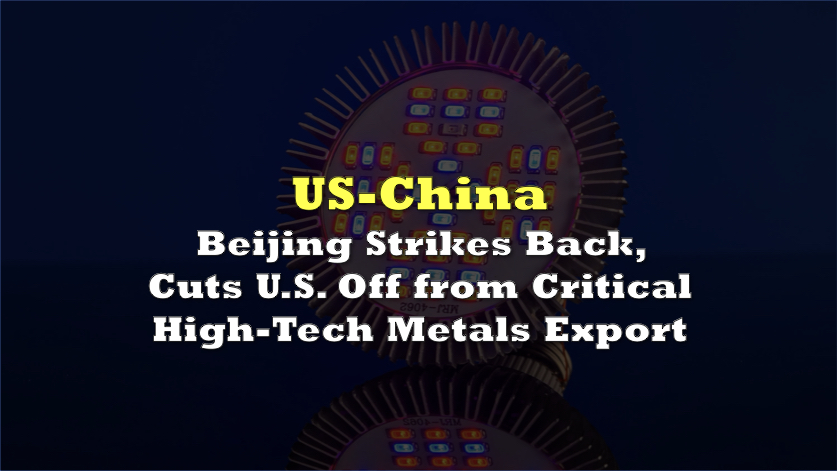In a sharp escalation of the ongoing trade tensions between the United States and China, Beijing has announced an immediate ban on the export of critical minerals—gallium, germanium, and antimony—to the United States, citing national security concerns. This move directly responds to the Biden administration’s recent expansion of export controls targeting China’s semiconductor industry.
The export ban, which takes effect immediately, targets materials with both civilian and military applications, signaling a significant shift in China’s strategy amid the escalating U.S.-China trade war.
The Chinese Ministry of Commerce stated that the export restrictions are necessary to “safeguard national security and interests,” emphasizing that the affected materials have dual-use applications in both civilian and military technologies. The ministry also indicated that stricter reviews would be applied to graphite exports to the U.S.
Gallium and germanium are essential to a range of high-tech industries. They are used in semiconductors, solar panels, infrared technologies, fiber optics, and military equipment such as night-vision goggles and advanced satellite systems.
Antimony, another material included in the ban, plays a crucial role in ammunition, flame retardants, and nuclear weapon production. Prices for antimony have skyrocketed by over 200% this year, hitting $39,000 per metric ton, according to Argus, as global markets scramble to fill the supply gap.
China dominates global production of these materials, accounting for 98.8% of refined gallium and 59.2% of refined germanium, according to consultancy Project Blue. The U.S. Geological Survey (USGS) also reports that nearly half of all gallium and germanium imported into the U.S. comes directly from China, leaving American manufacturers highly dependent on Beijing’s supply.

The export ban is expected to disrupt supply chains and increase prices for these critical materials. The USGS estimates that a total ban on gallium and germanium exports could result in a $3.4 billion decrease in U.S. GDP.
Chinese industry associations have criticized the U.S. export controls, arguing that they disrupt the global industrial chain and inflate costs for American companies. The China Semiconductor Industry Association stated that U.S. chip products are “no longer safe and reliable,” urging caution among Chinese industries when purchasing U.S. chips.
The ban was announced one day after the U.S. expanded its export restrictions on semiconductor technologies to include 140 companies, including China’s Naura Technology Group. The White House’s measures aim to curb Beijing’s access to advanced chip-making technologies, which the U.S. argues could be used for military purposes.
This latest salvo in the U.S.-China trade war highlights the interconnectedness of global supply chains and the vulnerabilities of over-reliance on a single country for critical resources. The U.S. government has long identified gallium, germanium, and antimony as materials of strategic importance. However, efforts to secure domestic production have lagged, leaving industries dependent on imports.
U.S. President-elect Donald Trump, who is set to take office next month, has already signaled plans to impose higher tariffs on Chinese goods, potentially exacerbating tensions. Trump previously described the U.S.-China trade relationship as “unbalanced” and has called for greater self-sufficiency in critical industries.
Information for this briefing was found via Reuters, Bloomberg, AP News, and the sources mentioned. The author has no securities or affiliations related to this organization. Not a recommendation to buy or sell. Always do additional research and consult a professional before purchasing a security. The author holds no licenses.









